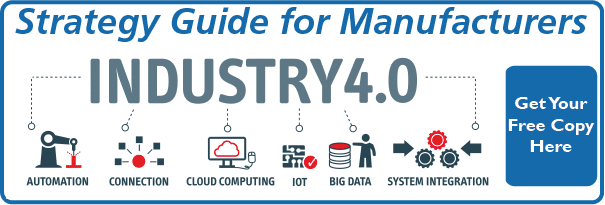Middle Market Industrial Earnings Surge
Earnings for the industrials sector earnings rose 23.9%, posting the strongest gains this quarter, followed by Technology companies, which reported earnings growth of 22.8%, according to the index. WSJ CFO Journal citing Golub Capital Altman Index
 That's fabulous news! The article further notes that this reflects EBITDA and isn't boosted by the tax bill which will favorably impact the net. It does reflect higher gas prices, but not any impact of tariffs. And obviously it's despite widely discussed workforce challenges.
That's fabulous news! The article further notes that this reflects EBITDA and isn't boosted by the tax bill which will favorably impact the net. It does reflect higher gas prices, but not any impact of tariffs. And obviously it's despite widely discussed workforce challenges.
Good times carry their own challenges for sure, but they keep companies coming back for more - kind of like that great approach shot that brings you back for another round despite the other 85 strokes that day.
But we know there are cycles, and while middle market industrial earnings have surged, here are a couple other headlines from the same period.
GE, original member of Dow, booted from index
Yoghurt sales slump as consumers ditch sugary treats for dairy free options
Remember, not that long ago, GE was unassailable. They were an icon of industrial manufacturing. And Hamdi Ulukaya of Chobani was a wealthy visionary. But then we learned about Immelt's chase plane, and dairy-free gained traction at the expense of low-fat Greek yoghurt.
Things change.
Anticipating and preparing for important change - that which represents threats and key opportunities - is perhaps the most important function of management. And while it's often clear in retrospect it's harder to see as it happens.
Because we often can't let ourselves.
We all are learning, modifying, or destroying ideas all the time. Rapid destruction of your ideas when the time is right is one of the most valuable qualities you can acquire. You must force yourself to consider arguments on the other side — CharlieMunger
That's especially true when times are good. When we're busy working in a vibrant business as opposed to working on it as the saying goes.
So what would middle market industrials be working on during this boom time if they weren't preoccupied simply keeping up with the exciting growth?
I've got a list of three key topics:
- How buyers buy and what they expect as part of the buyer and customer experience
- 3D printing - it's not just for prototyping anymore
- New business models and revenue opportunities with Industry 4.0
None of these have to be solved in the short-term, but companies have to get in the habit of thinking about them.
Buyer behaviors and expectations
UPS has done some interesting research into millennial industrial buyers. This quote from Simon Bhadra, senior manager of UPS Customer Segment Marketing sums up the findings well.
There’s a tendency to think millennials care only about the e-commerce and digital channels their suppliers offer. And don’t get me wrong, those are extremely important, but the data shows more millennial buyers expect a broader range of services from suppliers than their Gen X and Baby Boomer peers.
So in addition to digital tools that help them research and interact (like conversational marketing), they are accustomed to subscription solutions (like product-service systems) which they've come to expect as consumers.
3D Printing
We're a long ways from the demise of factories. Perhaps local one-off manufacturing will never supplant centralized manufacturing. But the role of 3D printing in your supply chain, and in your customers' is critical to consider...and rapidly evolving.
'During first 20 years of 3-D printing, the technology was too slow and expensive, so its primary use was prototyping. Today, 3-D printing is finally starting to be used for high-volume, mass production'...no one saw the potential earlier: 'There was skepticism that you’d want to print metal parts to begin with: people would nod their head, but you could see the smirk on their mouths.' Wired
Business models & revenue sources
From where you sit today, how will you structure your product and service offerings so that you grow subscription sales to 50% of your revenue within ten years?
Leveraging the full transformational potential of Industry 4.0 may require organizations to make a leap from the familiar terrain of using technology to improve business operations to the uncharted territory of creating new technology-driven business models and developing new ways to create, deliver, and capture value. WSJ
Disrupt gradually
Many companies worry about scale and resources. And appropriately so. While that's important to keep in mind to avoid quixotic waste, it's not a practical limitation on lots of experimentation.
Companies can find manageable and incremental ways to begin to build their internal comfort and capability to seize these opportunities. That means they can even do it while everyone's busy with strong orders.
Actually, it means that when business is too good, and they're too busy, it's a perfect time to start!



